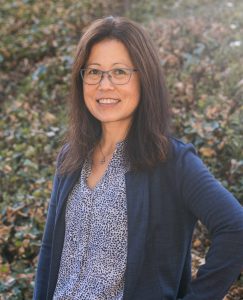Research in support of commercialization of cellulosic biofuels and bioproducts
Cellulosic biomass is a promising feedstock for the production of advanced biofuels mandated by the 2007 Energy Independence and Security Act. Cellulose, a structural component in energy crop, agricultural residues and municipal solid wastes is highly abundant and shown to reduce net carbon dioxide emission from fuel production by more than 50 % as compared to the production of gasoline. Commercial-scale production of cellulosic biofuels, however, is limited, with a projected global production of up to 85 million gallons/year by the end of 2014, meeting less than 1% of the Renewable Fuels Standard goal of 36 billion gallons in 2022. The bottleneck for commercialization of cellulosic biofuels is still the high cost of saccharifying cellulosic biomass to fermentable sugars, a process that requires thermal chemical pretreatment and enzymatic hydrolysis. Dr. Jeoh’s research is motivated by the unaswered questions hindering commercialization of the bioconversion of cellulosic biomass to fuels and chemicals.
- Understanding the mechanism of cellulose hydrolysis by cellulase enzymes
- Understanding and predicting how biomass pretreatment affects cellulase accessibility to cellulose in lignocellulosic biomass
- Understanding the role of the rheology of saccharification reactions on hydrolysis kinetics
Ion-Mediated Cross-Linked Spray-Dry Microencapsulation
Encapsulation of bioactive compounds in cross-linked matrices such as alginate matrices cross-linked by calcium ions is a common and effective means to confer long term protection of the compounds and control targeted delivery of the compounds in the gastrointestinal tract. Current encapsulation methods, however, are multi-step processes that are expensive to scale-up. Dr. Jeoh and members of her lab have developed a new technology to allow direct cross-linking of alginates during spray-drying, thus allowing industrial-scale encapsulation of bioproducts (proteins, cells, probiotics, neutraceuticals etc). http://techtransfer.universityofcalifornia.edu/NCD/20956.html
- Investigating a new strategy for effective and inexpensive delivery of lipophilic bioactives in foods
Recent Publications from the Jeoh Lab





